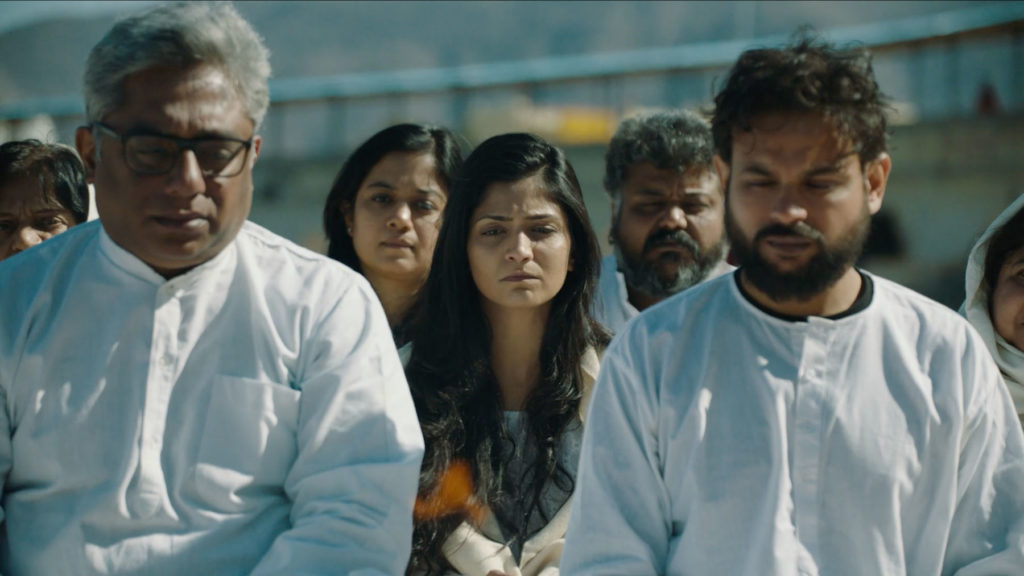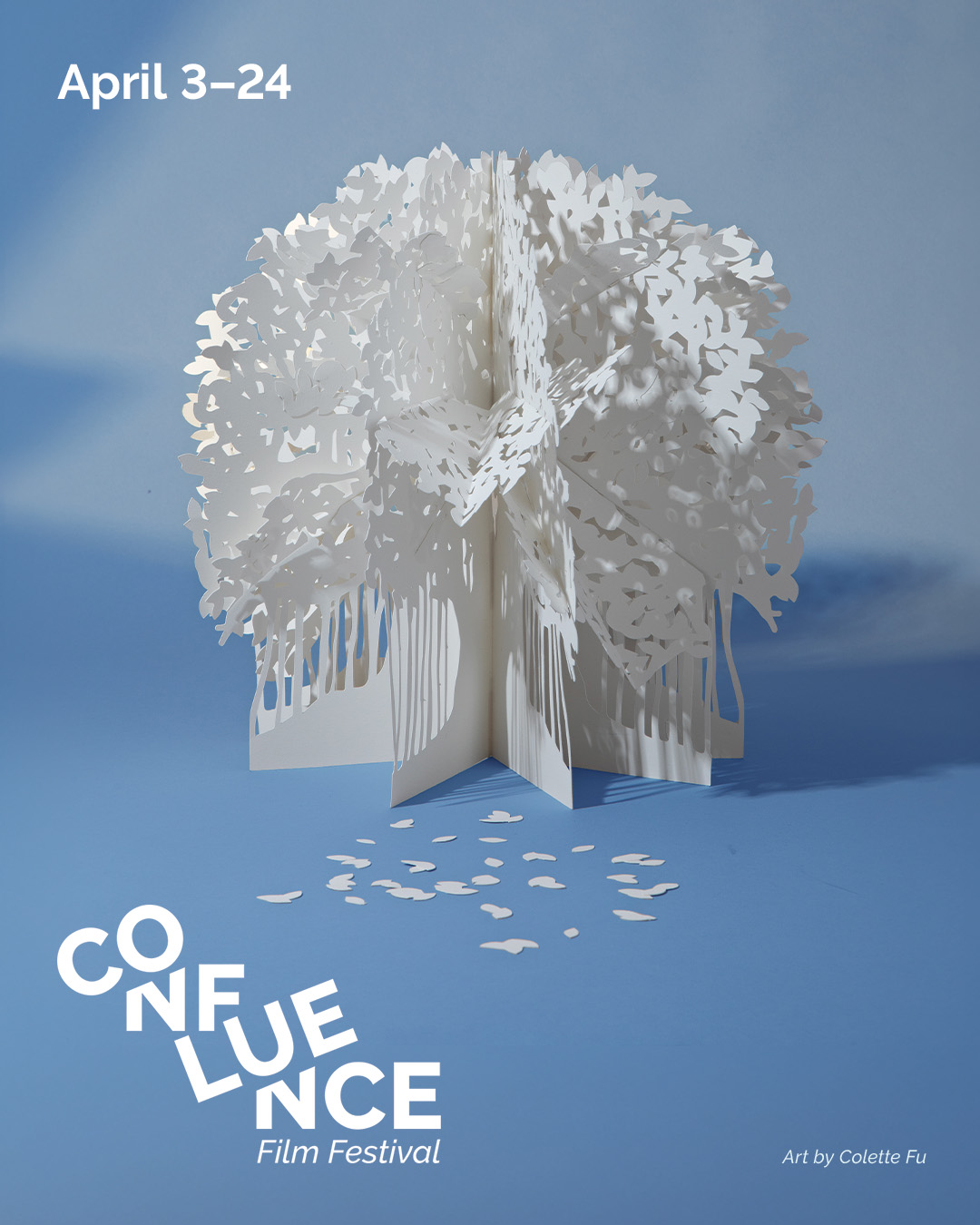Short Reflections: Self Determination
Sometimes what we want and what others want for us completely contradict one another. Other times, they align perfectly. The shorts in this program, Self Determination, explore the internal and external motivations that determine how we live our lives. Some of the filmmakers and actors from this program chatted with us about their films, their artistic roots, and their dreams. Magic Kingdom 夢樂園 Director: Nelson Ng Chak Hei Without spoiling anything, describe your film in 7 words or less. Nelson: Father son story about their American dream Do you have a favorite memory from making this film? Were there any challenges that you had to overcome? Nelson: It’s a great feeling when an unintended moment becomes better than what was originally planned. There was a scene that was supposed to take place inside a bus during sunset. The bus came late so we shot the scene at the bus stop instead. I was glad we did that since the timing and the location made the scene even better. Our concern coming into this project during pre-production was being able to cast a Cantonese speaking boy locally in LA. It was out of sheer luck and help from our casting director Kara we were able to find Trevis. Despite it’s his first time acting, his natural talent and calm demeanor made it so much easier for us. What do you hope to see in the future for the film industry? How do you see yourself and your work playing a role in this future? Nelson: Over the last few years, we’ve seen a growing trend with more Asian American films and TV shows being produced, yet there are so many more Asian American experiences that haven’t been told on screen yet. I hope the trend continues providing filmmakers like myself to continue to explore these stories. What’s next for you? Nelson:There’s a couple of projects I’m working on right now. One of which is a period piece, exploring the experiences of the first Chinese Americans who came to the US during the California Gold Rush. Unmothered Director: Urvashi Pathania Cast: Sharayu Mahale Without spoiling anything, describe your film in 7 words or less. Urvashi: A funny family tells a serious lie. Do you have a favorite memory from making this film? Were there any challenges that you had to overcome? Urvashi: As a USC film grad, I know Hollywood’s production style, but shooting in India was a whole new beast. For example, one of our locations was a designated holy site, which did not allow filming. We had to convince multiple priests who run competing temples at the site. Luckily, I cast my actual grandmother in this film and she was also incredibly helpful in the Priest Negotiations. In India, age and respect are synonymous, so having an 85-year-old on our team was a boon even beyond the obvious joy of making a movie with my grandma. Sharayu: One of my favorite memories is from our last filming location in Pushkar, India by a lake where the final scene of the film occurs. The smell of incense, the incredible view of the temples spilling into the lake, and the sounds of prayer were so surreal that I couldn’t believe I was actually filming in India- what a dream come true! I distinctly remember that final breakfast with our director, Urvashi, and producer, Ayesha, sitting cross legged on pillows thinking to myself how grateful I was to start off 2020 filming in a place like this surrounded by company like this. One of the biggest challenges I faced on this shoot was that I was very sick on day 1 and got progressively sicker, to the point where I lost my voice in the final couple of days! It was a challenging shoot because of the demanding schedule, cold weather, and adjusting to India’s atmosphere but I’m grateful to have been surrounded by such a dedicated team. What do you hope to see in the future for the film industry? How do you see yourself and your work playing a role in this future? Urvashi: A therapist friend recently told me about the concept of Asian Sadness. “When we get together, there’s often this heaviness to the experience,” she said as she picked at her fingernails. “This collective weight and awkwardness.” I nodded enthusiastically, realizing Asian Sadness is why I started writing stories. I was twelve and nobody had asked me to the middle school dance. “But if someone DID,” I wrote, “it would go like this…” In retrospect, I can’t blame my classmates. Hairy Indian girls didn’t get asked to dances in the movies we were watching. Other than in “Bend it Like Beckham,” hairy Indian girls weren’t depicted at all. Stories are the way we humanize each other, so without good Hollywood representation, of course I was forgotten. I was awkward. I was sad. So I wrote to fill in the gaps for myself. I would not have survived my Asian Sadness otherwise. As I’ve grown older, however, I also think about how I benefit from my Asianness. How my proximity to whiteness has allowed me to move through the world with relative ease. As an adult, I write about Asian Americans’ diasporic angst, our immigration issues, our self-hatred, our anti-blackness, but I also write about our love stories, our sick dance moves, our varied music, and how damn funny we are. Nuanced representation is our antidote to Asian Sadness, and I feel honored to work towards that noble pursuit. Sharayu: As the conversation around diversity grows and more corporations are financing diverse projects, I hope to see stories that go beyond tokenization and really explore the nuances of each culture. I’d like to see diversity in the whole cast, in the writer’s room, in the C suite of a TV network, the crew members, and more. One of my personal goals is to be a part of and create more projects that don’t simply bring existing stereotypes to
Short Reflections: Self Determination Read More »


